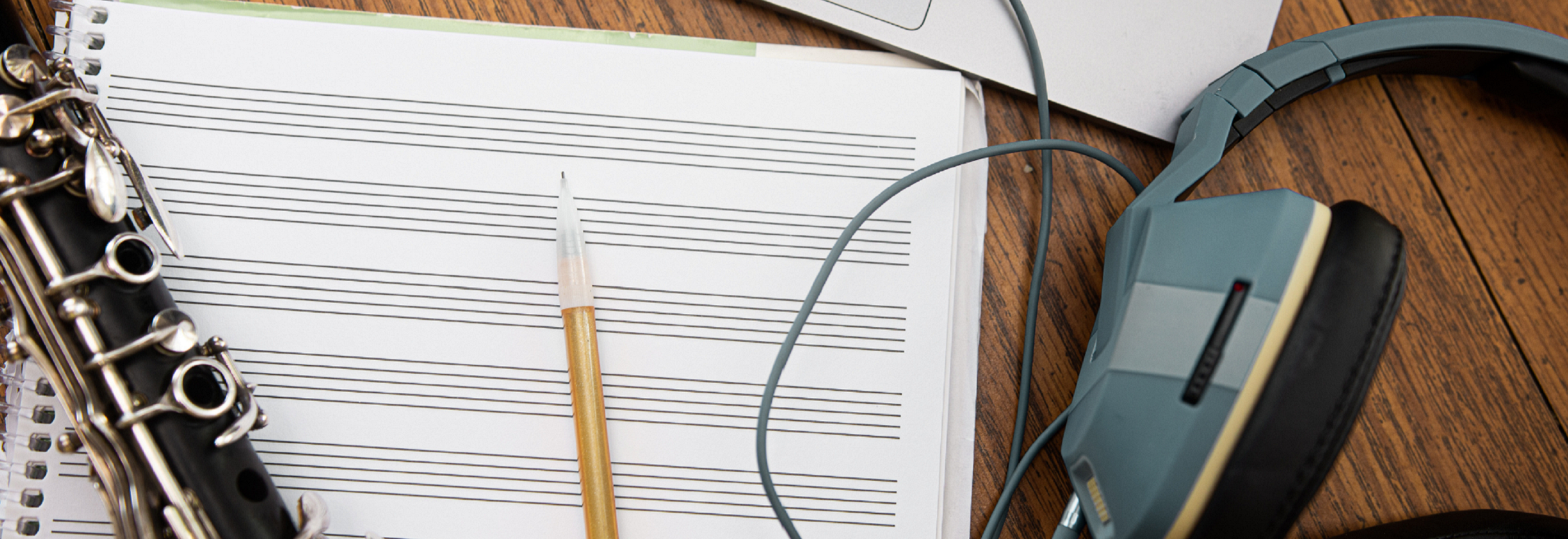
Supporting students writing their own composition for Classical & Jazz exam
BY: Guest Writer
04 October 2023
Have you ever looked at the Own Composition section in your exam syllabus, liked the idea, but not known where to start? In this blog, we explore how you can support students with this, and how this can be a great option for those who like to express themselves and their musical style in an individual way through their own musical masterpiece!
In Trinity’s performance exams (both face-to-face and digital), candidates can choose to perform their own composition as an alternative to a listed piece from the current repertoire list. This can be great fun and add a new dimension to lessons, allowing the candidate to take the lead with their own musical creation! Enabling learners to express their individual musical voice and creativity, this option is a wonderful way to create deeper connections to music theory, musical styles and composers. It can also be beneficial in supporting SEND students who may enjoy greater flexibility within their exam choices, particularly as, up to and including grade 5, the music can be notated in any readable form. Performing an own composition can be an excellent confidence booster leading to a greater sense of control within the exam itself.
For Classical & Jazz exams, the own composition piece will be assessed in the same way as a listed syllabus piece. It is important to remember that marks are not awarded for the quality of the composition itself or the score – the piece is marked using the criteria in exactly the same way as it is for the other two pieces being performed (or three for singing Grades 6-8). The technical and musical demands must be equivalent to the pieces listed for the same grade, so it is advisable to check the parameters published in the relevant instrumental syllabus for guidance on things like piece duration and suitable features to be included.
Make sure that the composition is notated for the examiner to follow so that they can assess the performance against the score. As I mentioned earlier, from Initial to Grade 5, own compositions can be notated in any easily readable form, including graphic score or lead-sheet. At Grades 6–8 they must be notated on a stave. It’s important to note that marks will be deducted if notation is incomplete or inaccurate, or if the performance varies significantly from the notation. For face-to-face exams, a copy of the score needs to be provided for the examiner and, for digital grades, please remember to upload a copy with the submission. Own compositions should be candidates’ own unaided work, although teachers may offer guidance.
A great place to start with writing an own composition is to audio record some initial ideas (making sure that, if you are working with under-18’s, you obtain the appropriate parental/guardian permission to record). Younger students can come up with some lovely motifs but can forget them quite quickly, so recording it can be a great way to hold onto those little musical nuggets! Carry on recording ideas to help with notating them down later. Remember that, whilst the piece is being developed, going back and listening through recordings can be useful to catch those earlier concepts candidates may decide to use for their final piece. Encouraging improvising within lessons to the key(s) suggested for the own composition at each grade can also be a great way to stimulate ideas.
Candidates who play or sing instruments that are typically performed with accompaniment (for at least part of the exam) have the option of performing their own compositions accompanied or unaccompanied. Where pieces are segregated into lists according to whether they are accompanied or not, accompanied own compositions must replace a Group A piece, and unaccompanied own compositions must replace the Group B piece.
If a student has a particular flair and interest in composition, you might want to consider how you can support them further. For example, maybe they can incorporate playing their own composition into their GCSE or A-Level submission, or explore compositional techniques further by working towards an Arts Award qualification. The important thing, though, is that they have fun and enjoy creating and performing their own piece!
Looking for further inspiration? Why not take a look at the Own Composition videos available on our website. You may also be interested in the publication Creative Composition for the Classroom – available in print and eBook formats.
Related posts
BY: Etain Ferdenzi



.png)
Comments & Replies